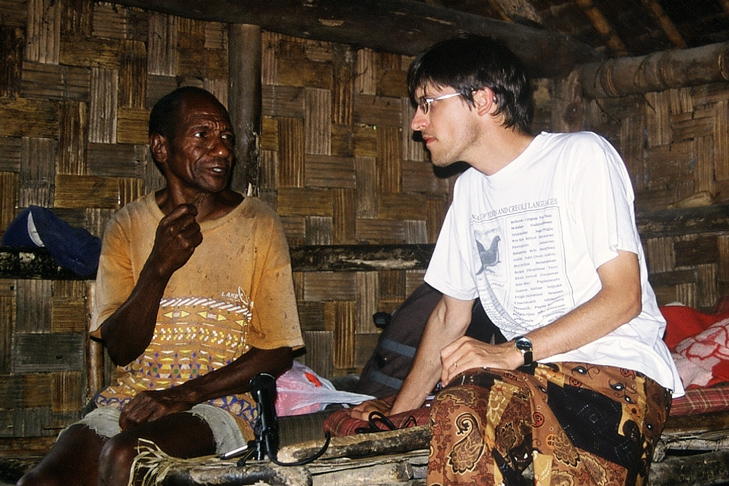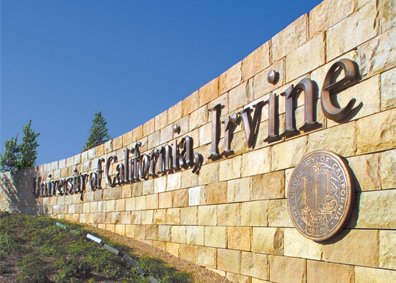|
Informant (linguistics)
An informant or consultant in linguistics is a native speaker or member of a community who acts as a linguistic reference for a language or speech community being studied. The informant's role is that of a senior interpreter, who demonstrates native pronunciation, provides grammaticality judgments regarding linguistic well-formedness, and may also explain cultural references and other important contextual information to researchers from other cultures studying the language. Linguistic informants, especially those who frequently work with linguists, may play a greater than usual role in the researcher's work, and other titles such as consultant or coauthor may be used to acknowledge and accurately reflect that contribution. Ethics concerns In any research situation, there is "an unequal relationship between investigator and informants" – if that inequality already existed before the research, it tends to amplify it. (This power differential is generally true despite clear ... [...More Info...] [...Related Items...] OR: [Wikipedia] [Google] [Baidu] |
Linguistics
Linguistics is the scientific study of language. The areas of linguistic analysis are syntax (rules governing the structure of sentences), semantics (meaning), Morphology (linguistics), morphology (structure of words), phonetics (speech sounds and equivalent gestures in sign languages), phonology (the abstract sound system of a particular language, and analogous systems of sign languages), and pragmatics (how the context of use contributes to meaning). Subdisciplines such as biolinguistics (the study of the biological variables and evolution of language) and psycholinguistics (the study of psychological factors in human language) bridge many of these divisions. Linguistics encompasses Outline of linguistics, many branches and subfields that span both theoretical and practical applications. Theoretical linguistics is concerned with understanding the universal grammar, universal and Philosophy of language#Nature of language, fundamental nature of language and developing a general ... [...More Info...] [...Related Items...] OR: [Wikipedia] [Google] [Baidu] |
Native Speaker
Native Speaker may refer to: * ''Native Speaker'' (novel), a 1995 novel by Chang-Rae Lee * ''Native Speaker'' (album), a 2011 album by Canadian band Braids * Native speaker, a person using their first language or mother tongue * Native speaker (by proficiency), a person who has achieved the highest level of proficiency in a language, meeting all linguistic, grammatical, and cultural benchmarks of a native speaker, regardless of age of acquisition {{disambiguation ... [...More Info...] [...Related Items...] OR: [Wikipedia] [Google] [Baidu] |
Pronunciation
Pronunciation is the way in which a word or a language is spoken. To This may refer to generally agreed-upon sequences of sounds used in speaking a given word or all language in a specific dialect—"correct" or "standard" pronunciation—or simply the way a particular individual speaks a word or language. Words' pronunciations can be found in reference works such as dictionaries. General-purpose dictionaries typically only include standard pronunciations, but regional or dialectal pronunciations may be found in more specific works. Orthoepy is the study of the pronunciation of a language. A word can be spoken in different ways by various individuals or groups, depending on many factors, such as: the duration of the cultural exposure of their childhood, the location of their current residence, speech or voice disorders, their ethnic group, their social class, or their education. Linguistic terminology Syllables are combinations of units of sound ( phones), for example "goo" ... [...More Info...] [...Related Items...] OR: [Wikipedia] [Google] [Baidu] |
Grammaticality
In linguistics, grammaticality is determined by the conformity to language usage as derived by the grammar of a particular speech variety. The notion of grammaticality rose alongside the theory of generative grammar, the goal of which is to formulate rules that define well-formed, grammatical sentences. These rules of grammaticality also provide explanations of ill-formed, ungrammatical sentences. In theoretical linguistics, a speaker's judgement on the well-formedness of a linguistic 'string'—called a grammaticality judgement—is based on whether the sentence is interpreted in accordance with the rules and constraints of the relevant grammar. If the rules and constraints of the particular lect are followed, then the sentence is judged to be grammatical. In contrast, an ungrammatical sentence is one that violates the rules of the given language variety. Linguists use grammaticality judgements to investigate the syntactic structure of sentences. Generative linguists are larg ... [...More Info...] [...Related Items...] OR: [Wikipedia] [Google] [Baidu] |
Well-formedness
__NOTOC__ In linguistics, well-formedness is the quality of a clause, word, or other linguistic element that conforms to the grammar of the language of which it is a part. Well-formed words or phrases are grammatical, meaning they obey all relevant rules of grammar. In contrast, a form that violates some grammar rule is ill-formed and does not constitute part of the language. A word may be phonologically well-formed, meaning it conforms to the sound pattern of the language. For example, the nonce word ''wug'' coined by Jean Berko Gleason is phonologically well-formed, so informants are able to pluralize it regularly. A word, phrase, clause, or utterance may be grammatically well-formed, meaning it obeys the rules of morphology and syntax. A semantically well-formed utterance or sentence is one that is meaningful. Grammatical well-formedness and semantic well-formedness do not always coincide. For example, the following sentence is grammatically well-formed, but has no clear m ... [...More Info...] [...Related Items...] OR: [Wikipedia] [Google] [Baidu] |
Context (language Use)
In semiotics, linguistics, sociology and anthropology, context refers to those objects or entities which surround a ''focal event'', in these disciplines typically a communicative event, of some kind. Context is "a frame that surrounds the event and provides resources for its appropriate interpretation". It is thus a relative concept, only definable with respect to some focal event within a frame, not independently of that frame. In linguistics In the 19th century, it was debated whether the most fundamental principle in language was contextuality or compositionality, and compositionality was usually preferred.Janssen, T. M. (2012) Compositionality: Its historic context', in M. Werning, W. Hinzen, & E. Machery (Eds.), The Oxford handbook of compositionality', pp. 19-46, Oxford University Press. Verbal context refers to the text or speech surrounding an expression (word, sentence, or speech act). Verbal context influences the way an expression is understood; hence the norm of ... [...More Info...] [...Related Items...] OR: [Wikipedia] [Google] [Baidu] |
Cambridge University Press
Cambridge University Press was the university press of the University of Cambridge. Granted a letters patent by King Henry VIII in 1534, it was the oldest university press in the world. Cambridge University Press merged with Cambridge Assessment to form Cambridge University Press and Assessment under Queen Elizabeth II's approval in August 2021. With a global sales presence, publishing hubs, and offices in more than 40 countries, it published over 50,000 titles by authors from over 100 countries. Its publications include more than 420 academic journals, monographs, reference works, school and university textbooks, and English language teaching and learning publications. It also published Bibles, runs a bookshop in Cambridge, sells through Amazon, and has a conference venues business in Cambridge at the Pitt Building and the Sir Geoffrey Cass Sports and Social Centre. It also served as the King's Printer. Cambridge University Press, as part of the University of Cambridge, was a ... [...More Info...] [...Related Items...] OR: [Wikipedia] [Google] [Baidu] |
University Of California, Irvine
The University of California, Irvine (UCI or UC Irvine) is a Public university, public Land-grant university, land-grant research university in Irvine, California, United States. One of the ten campuses of the University of California system, UCI offers 87 undergraduate degrees and 129 graduate and professional degrees, and roughly 30,000 undergraduates and 7,000 graduate students were enrolled at UCI as of Fall 2024. The university is Carnegie Classification of Institutions of Higher Education, classified among "R1: Doctoral Universities – Very high research activity" and had $609.6 million in research and development expenditures in 2023, ranking it 56th nationally. UCI became a member of the Association of American Universities in 1996. The university administers the UC Irvine Medical Center, a large teaching hospital in Orange, California, Orange, and UC Irvine Health Sciences, its affiliated health sciences system; the University of California, Irvine, Arboretum; and a po ... [...More Info...] [...Related Items...] OR: [Wikipedia] [Google] [Baidu] |
Ethics
Ethics is the philosophy, philosophical study of Morality, moral phenomena. Also called moral philosophy, it investigates Normativity, normative questions about what people ought to do or which behavior is morally right. Its main branches include normative ethics, applied ethics, and metaethics. Normative ethics aims to find general principles that govern how people should act. Applied ethics examines concrete ethical problems in real-life situations, such as abortion, treatment of animals, and Business ethics, business practices. Metaethics explores the underlying assumptions and concepts of ethics. It asks whether there are objective moral facts, how moral knowledge is possible, and how moral judgments motivate people. Influential normative theories are consequentialism, deontology, and virtue ethics. According to consequentialists, an act is right if it leads to the best consequences. Deontologists focus on acts themselves, saying that they must adhere to Duty, duties, like t ... [...More Info...] [...Related Items...] OR: [Wikipedia] [Google] [Baidu] |
Advocacy
Advocacy is an Action (philosophy), activity by an individual or advocacy group, group that aims to influence decision making, decisions within political, economic, and social institutions. Advocacy includes activities and publications to influence public policy, laws and budgets by using facts, their relationships, the media, and messaging to educate government officials and the public. Advocacy can include many activities that a person or organization undertakes, including media campaigns, public speaking, commissioning and publishing research. Lobbying (often by lobby groups) is a form of advocacy where a direct approach is made to legislators on a specific issue or specific piece of legislation. Research has started to address how advocacy groups in the United States and Canada are using social media to facilitate civic engagement and collective action. Forms There are several forms of advocacy, each representing a different approach in a way to initiate changes in the s ... [...More Info...] [...Related Items...] OR: [Wikipedia] [Google] [Baidu] |
Empowerment
Empowerment is the degree of autonomy and self-determination in people and in communities. This enables them to represent their interests in a responsible and self-determined way, acting on their own authority. It is the process of becoming stronger and more confident, especially in controlling one's life and claiming one's rights. Empowerment as action refers both to the process of self-empowerment and to professional support of people, which enables them to overcome their sense of powerlessness and lack of influence, and to recognize and use their resources. As a term, empowerment originates from American community psychology and is associated with the social scientist Julian Rappaport (1981). In social work, empowerment forms a practical approach of resource-oriented intervention. In the field of citizenship education and democratic education, empowerment is seen as a tool to increase the responsibility of the citizen. Empowerment is a key concept in the discourse on promot ... [...More Info...] [...Related Items...] OR: [Wikipedia] [Google] [Baidu] |






